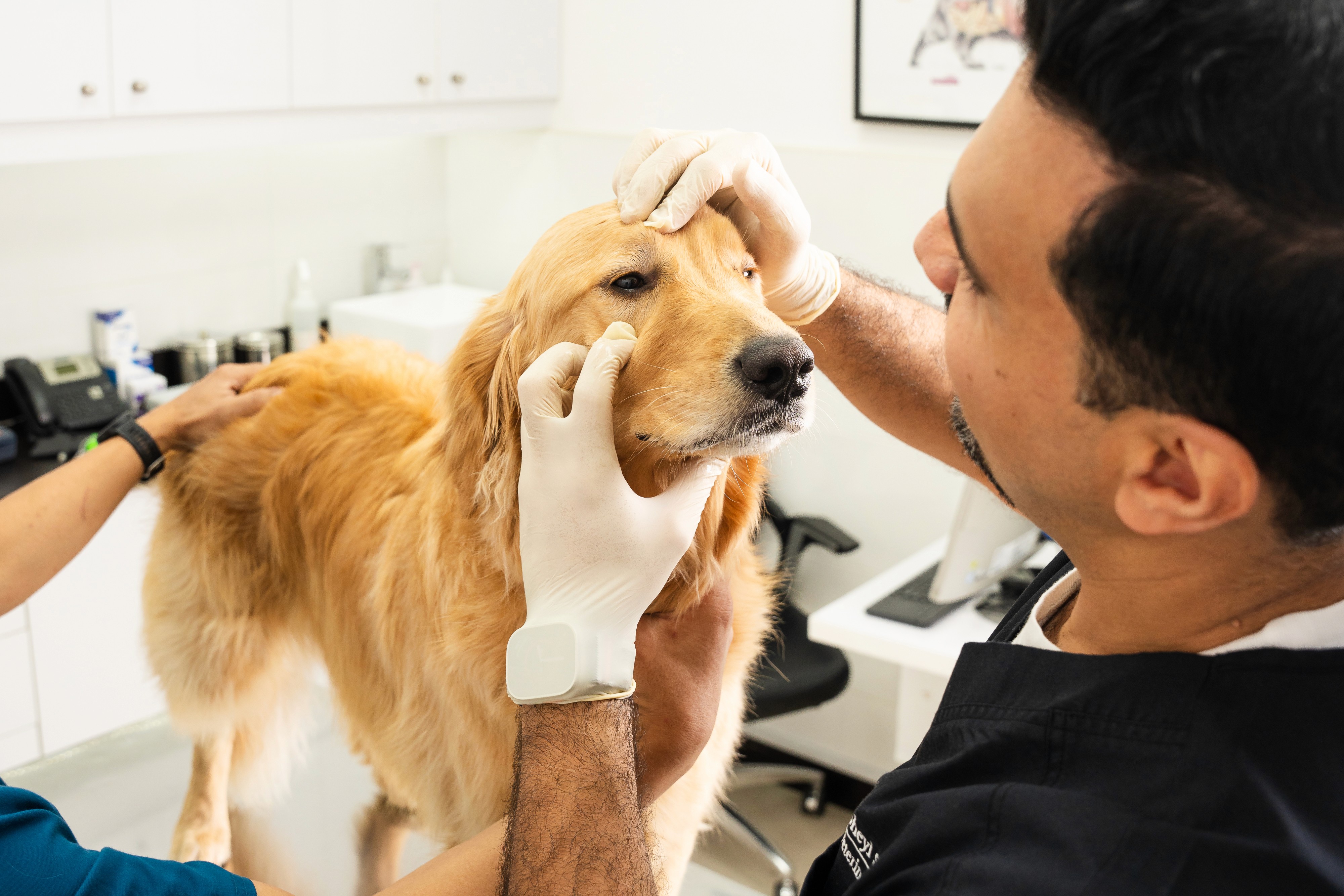12/01/2024
A dog’s diet should be balanced and filled with a variety of food from vegetable, fruit, and meat sources that comprise the nutritional content they need. They require a complete balance of vitamins, minerals, carbohydrates, fats, and protein. While it is quite hard to give a completely balanced meal, treats can help give small doses of nutrients that would complete the entire diet. One popular choice is blueberries because they are easy to feed to dogs since they are small and handy. But can dogs eat blueberries?
Can Dogs Eat Blueberries
Yes, dogs can eat blueberries. Blueberries provide a good amount of nutrients, such as vitamins and minerals, to help support dogs' bodily functions, and they also taste good. You can add blueberries to your dog’s meal as long as they are in the form of treats only. Blueberries are healthy but should be given in moderation so as to not interfere with your dog’s main diet. A dog should have a balance in the food it eats.
Nutritional Benefits When Dogs Eat Blueberries

Blueberries provide beneficial nutrients for your dog. From essential vitamins, minerals, and antioxidants, your dog can get a lot from this simple berry. These fruits can become great additions to your dog’s meal, giving its essential bodily functions a boost. Here are some of the nutrients available when dogs eat blueberries.
Vitamins in Blueberries
Vitamin A
Vitamin A provides clear, high-quality vision. It also aids in protecting the cornea and enhancing night vision for dogs. The vitamin further helps your dog's immune system by maintaining a strong protective wall through white blood cells, which support fighting deadly infections. This allows their eyes to stay protected even through their numerous adventures.
Blueberries are a great source of Vitamin A. They help maintain a dog’s clean and healthy coat and are also an excellent method of providing your dogs with this, which includes an improvement in wound healing and a reduction in the chance of getting skin infections.
Vitamin C
Vitamin C has three main benefits for your dogs. These include improvements in their immune system, inflammation response, and collagen production. Good amounts of Vitamin C allow the dog to produce a greater number of phagocytes. By doing so, their protection from harmful sources such as bacteria and foreign bodies will be improved.
Vitamin C also acts as a protector against free radicals that, if left untamed, will oxidise and cause inflammation. It works as an antioxidant for your dog against other sources that can harm you through improvements in overall health. The vitamin also plays an active part in producing collagen. Collagen production helps keep the skin, tissues, and joints of your dog of good quality.
Vitamin K
Vitamin K is essential for helping dogs heal from injuries. Blood clotting is one of the most important factors in a dog’s body. Whenever your dog gets hurt from playing or exploring, blood clotting can save it from any severe issues or complications.
The vitamin also focuses on bone health as a whole. Bone-related issues are prevented with the help of Vitamin K. Dogs can get a good source of this vitamin in blueberries but only when given in moderation.
Minerals in Blueberries
Calcium
Calcium is one of the most commonly known sources of bone health and dental health. It helps keep your dog’s bones and teeth strong for their activities, such as exploring and eating. Blueberries directly give your dog a boost in Calcium just from a handful of pieces.
Magnesium
Magnesium is an all-around mineral that aids in a couple of important bodily functions in your dog. This includes energy absorption, muscle control, and heart maintenance. Blueberry gives your dog a boost in overall metabolism while maintaining the functions of the heart and the muscles around it. Having a well-maintained and regulated muscle function gives your dog the ability to do more.
Phosphorus
Phosphorus is another mineral that works well with others. Together with calcium, it helps keep teeth and bones strong and healthy. This keeps your dog more active and prevents any significant bone fractures. Phosphorus also aids in the kidney's waste disposal function. By doing so, it ensures your dog’s internal structure well-maintained.
Potassium
When talking about muscle function and nerve impulses, potassium is a great way to keep those functions running. Potassium is great for making sure your dog’s muscles do not cramp while they are busy with their chase. The vitamin also serves as a greate regulator of blood pressure, which leads to a healthy heart.
Antioxidants in Blueberries
The antioxidants present in blueberries help protect your dog from the oxidation caused by free radicals. In doing so, chronic diseases and conditions can be prevented without any side effects. Flavonoids and anthocyanins are examples of antioxidants that enhance your dog’s lifestyle.
Hazards When Dogs Eat Blueberries
Blueberries are small but sweet fruits that give your dogs a bundle of joy whenever they get these as treats. However, as with any type of food, potential hazards should be kept in mind in order to prepare for any issue that may threaten your dog’s health when they eat blueberries. Here are the potential hazards when dogs eat blueberries:
Choking Hazard
The small size of blueberries makes it easy to land their way into your dog’s mouth. But even with their small size, dogs can still get choked when they eat too many at a time. Puppies and small dogs who still have trouble eating may also be threatened to choke when eating blueberries. Mashing these blueberries will certainly help make your dog eat these fruits more easily.
Overfeeding
Blueberries are fruits that may be ingested in large numbers due to their small size. As a result, your dog may be taking in too much sugar, which can lead to obesity. This can also lead to dental problems and dietary issues. Overfeeding dogs is a common issue pet owners have. But as their caretakers, we must be responsible for keeping their diets in check.
Digestive Issues and Allergies
While it is quite rare, dogs can have allergies to blueberries. This means that there is a small chance they can experience symptoms like redness, irritation, and swelling when they eat blueberries. Another problem to look into is digestive issues. Diarrhea, vomiting, and constipation can be potential problems when your dog can not handle blueberries.
Pesticides
Blueberries contain pesticides that may harm your dogs. These chemicals might be useful in keeping pests away, but they need to be removed once they have finished their job. Washing and rinsing your blueberries helps make sure the food your dog eats is clean and safe.
How to Feed Blueberries to Your Dogs

Giving blueberries to your dogs is a simple task that requires careful planning. It’s always important to prepare the food you give to your dog in order to control what and how much it eats. When looking to know what foods to give to your dogs, it’s helpful to ask for expert advice. Our vets at Noble Vet Clinic are ready to assist you in making your dog’s diet plan. In the case of blueberries, it should be observed that these can only be given in strict moderation. Too much of something is always bad. Here are ways to feed your dog blueberries:
1. Wash the Berries
Blueberries are grown with a handful of chemicals in order to make sure they grow fully without any intervention from pests. This means it’s important to make sure these chemicals never reach your dog by simply washing and rinsing them down. Use a big bowl to gather all your blueberries up, and simply add water while manually rubbing the fruit to get rid of the chemicals. Let it sit for a while, and then rinse them off with another round.
2. Feed in Small Portions
Feeding in small portions allows you to control the amount of blueberries your dog can eat. This lets you avoid any complications, such as overfeeding and giving too much sugar. High amounts of sugar are not something that dogs can benefit from. By controlling the portions, you can limit its blueberry intake and focus more on getting a balanced diet for your dog.
3. Give Slowly
Giving blueberries slowly allows you to control the pace. Dogs can be quite greedy with their food, and this is evident in the energy they show whenever they eat. We know they’re just happy to munch and receive a treat, but we should also keep in mind that we need to control their eating habits. Obesity is a common issue with dogs, and good health starts with great practice.
Conclusion
While blueberries can be a healthy and delicious treat for your dog, it’s essential to be aware of the potential risks. By understanding how your dog’s diet works, you can create a good combination of foods that help your dog’s well-being. Feeding blueberries in moderation is a great way to start giving them treats. Just make sure these blueberries are washed and free from pesticides. Once they get the hang of the treats, you can safely incorporate blueberries as a weekly treat for their good deeds.
Subscribe to Our
Newsletter
Sign up for weekly pet health tips and insights from our veterinarians.
